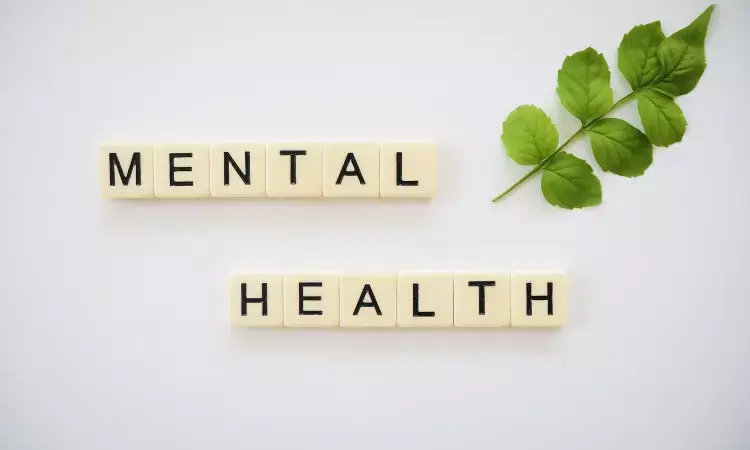- Home
- Medical news & Guidelines
- Anesthesiology
- Cardiology and CTVS
- Critical Care
- Dentistry
- Dermatology
- Diabetes and Endocrinology
- ENT
- Gastroenterology
- Medicine
- Nephrology
- Neurology
- Obstretics-Gynaecology
- Oncology
- Ophthalmology
- Orthopaedics
- Pediatrics-Neonatology
- Psychiatry
- Pulmonology
- Radiology
- Surgery
- Urology
- Laboratory Medicine
- Diet
- Nursing
- Paramedical
- Physiotherapy
- Health news
- Fact Check
- Bone Health Fact Check
- Brain Health Fact Check
- Cancer Related Fact Check
- Child Care Fact Check
- Dental and oral health fact check
- Diabetes and metabolic health fact check
- Diet and Nutrition Fact Check
- Eye and ENT Care Fact Check
- Fitness fact check
- Gut health fact check
- Heart health fact check
- Kidney health fact check
- Medical education fact check
- Men's health fact check
- Respiratory fact check
- Skin and hair care fact check
- Vaccine and Immunization fact check
- Women's health fact check
- AYUSH
- State News
- Andaman and Nicobar Islands
- Andhra Pradesh
- Arunachal Pradesh
- Assam
- Bihar
- Chandigarh
- Chattisgarh
- Dadra and Nagar Haveli
- Daman and Diu
- Delhi
- Goa
- Gujarat
- Haryana
- Himachal Pradesh
- Jammu & Kashmir
- Jharkhand
- Karnataka
- Kerala
- Ladakh
- Lakshadweep
- Madhya Pradesh
- Maharashtra
- Manipur
- Meghalaya
- Mizoram
- Nagaland
- Odisha
- Puducherry
- Punjab
- Rajasthan
- Sikkim
- Tamil Nadu
- Telangana
- Tripura
- Uttar Pradesh
- Uttrakhand
- West Bengal
- Medical Education
- Industry
Serious Mental Illness Linked to Higher Risk of Long COVID: JAMA Study

Mental Health
A new study published in the Journal of the American Medical Association showed that postacute sequelae of SARS-CoV-2 (PASC) were more common in patients with schizophrenia, bipolar illness, or recurrent major depressive disorder, highlighting the necessity for integrated mental health and COVID-19 care regimens.
It is uncertain if those with a serious mental illness (SMI) are more likely to have postacute sequelae of SARS-CoV-2 (PASC), given their greater susceptibility to COVID-19. Secondary prevention initiatives might benefit from an understanding of this connection. Thus, this study determined the risk that individuals with an SMI will acquire PASC.
Data from extensive electronic health records (EHRs) between March 2020 and April 2023, including a 180-day follow-up, were used in this longitudinal cohort research. Adults aged 21 years or older who had a proven COVID-19 infection—as shown by a relevant lab test, diagnosis, or prescription order—were considered patients. Evidence of a diagnosis of schizophrenia, bipolar illness, or recurrent major depressive disorder prior to COVID-19 infection was also included.
Evidence of PASC symptoms within 30 to 180 days of follow-up following COVID-19 infection was considered the primary outcome. It was reported as odds ratios (OR) that were mutually adjusted for race, age, sex, ethnicity, insurance type, COVID-19 severity, and Charlson Comorbidity Index (CCI) score.
- A total of 1,625,857 COVID-19–infected patients were included (mean [SD] age, 52 [17] years; 998,237 [61.4%] females; 204,237 [12.6%] non-Hispanic Black; 219,220 [13.5%] Hispanic; 833,411 [51.3%] non-Hispanic White; and 1,228,664 [75.6%] urban patients).
- Of these, 258,523 (15.9%) had an SMI and 403,641 (24.8%) developed PASC. The adjusted odds of developing PASC were higher in those with an SMI (OR, 1.10; 95% CI, 1.08–1.11; P < .001).
- Older age (compared to age 22–34 years), non-Hispanic Black and Hispanic ethnicity (compared to non-Hispanic White) (OR, 1.08; 95% CI, 1.07–1.10; OR, 1.12; 95% CI, 1.11–1.13), higher chronic disease burden (CCI 1–3: OR, 1.13; 95% CI, 1.12–1.14; CCI ≥4: OR, 1.23; 95% CI, 1.22–1.25), and hospitalization with initial COVID-19 infection were also associated with increased PASC risk.
- Commercial health insurance was linked to decreased odds of PASC when compared to public insurance (OR, 0.85; 95% CI, 0.84–0.86). Overall, the necessity for coordinated mental health and COVID-19 care approaches is highlighted by the fact that patients with SMI were more likely to develop PASC than those without SMI.
Source: Vekaria, V., Thiruvalluru, R. K., Verzani, Z., Abedian, S., Olfson, M., Patra, B. G., Xiao, Y., Salamon, K. S., Hoth, K., Blancero, F., Hornig-Rohan, M. M., Akintonwa, T., Sabiha, M., Weiner, M. G., Carton, T. W., Kaushal, R., Pathak, J., & RECOVER PCORnet EHR Consortium. (2025). Schizophrenia, bipolar, or major depressive disorder and postacute sequelae of COVID-19. JAMA Network Open, 8(10), e2540242. https://doi.org/10.1001/jamanetworkopen.2025.40242
Neuroscience Masters graduate
Jacinthlyn Sylvia, a Neuroscience Master's graduate from Chennai has worked extensively in deciphering the neurobiology of cognition and motor control in aging. She also has spread-out exposure to Neurosurgery from her Bachelor’s. She is currently involved in active Neuro-Oncology research. She is an upcoming neuroscientist with a fiery passion for writing. Her news cover at Medical Dialogues feature recent discoveries and updates from the healthcare and biomedical research fields. She can be reached at editorial@medicaldialogues.in
Dr Kamal Kant Kohli-MBBS, DTCD- a chest specialist with more than 30 years of practice and a flair for writing clinical articles, Dr Kamal Kant Kohli joined Medical Dialogues as a Chief Editor of Medical News. Besides writing articles, as an editor, he proofreads and verifies all the medical content published on Medical Dialogues including those coming from journals, studies,medical conferences,guidelines etc. Email: drkohli@medicaldialogues.in. Contact no. 011-43720751


